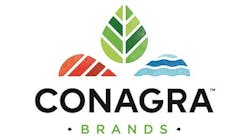Institutional investors representing more than $4 trillion in assets plus some of the world’s largest food & beverage companies sent a letter June 1 asking the Roundtable on Sustainable Palm Oil (RSPO) to strengthen its standards for certifying the sustainable production of palm oil. Palm oil is found in an estimated 50 percent of all packaged goods, from cosmetics to candy.
The companies and investors submitted their letter summarizing their recommendations just days before RSPO hosts its European roundtable and board meeting in Amsterdam. The letter calls on RSPO to prohibit deforestation in palm oil supply chains and include additional environmental and human rights protections.
The letter was organized by the office of New York State Comptroller Thomas DiNapoli and Green Century Capital Management, an environmentally responsible mutual fund company. Signatories included five of the top 10 corporate purchasers of palm oil globally -- Colgate-Palmolive, Kao Corp. (Japan), PepsiCo, Procter & Gamble Co. and Johnson & Johnson – plus ConAgra, Dunkin’ Brands, General Mills, Kellogg Co., Mars Inc., Starbucks, Albertsons-Safeway, Coop Switzerland, Seventh Generation and Walmart.
RSPO, the multi-stakeholder sustainability certification body for the palm oil industry, is tasked with providing assurance that palm oil has been produced sustainably. But its standards do not include protections for peatlands or high carbon stock forests, and have an inconsistent record of enforcement. Following a recent wave of corporate commitments to source palm oil according to sustainability standards that go beyond RSPO standards, investors and companies have joined together in this letter with the aim of ensuring that the RSPO becomes a more effective tool for verifying and enforcing the sustainable production of palm oil.
“As an international certification scheme, the RSPO is uniquely positioned to support, promote, and enforce the widespread uptake of responsible and sustainable production practices across the palm oil industry," the letter said. "Given current gaps in RSPO certification, however, purchasing RSPO Certified Sustainable Palm Oil (CSPO) does not sufficiently address critical sustainability concerns in the palm oil supply chain.
“[We] recognize deforestation as a significant risk to long-term business models and, consequently, investments. Palm oil production offers both challenges and opportunities to promote thriving, sustainable economic development. As such, we urge the RSPO to set and enforce standards for truly responsible and sustainable palm oil production," the signatories wrote.
The $44 billion per year palm oil industry has become a leading driver of deforestation, which causes 15-20 percent of global greenhouse gas (GHG) emissions, according to the Environmental Protection Agency.

